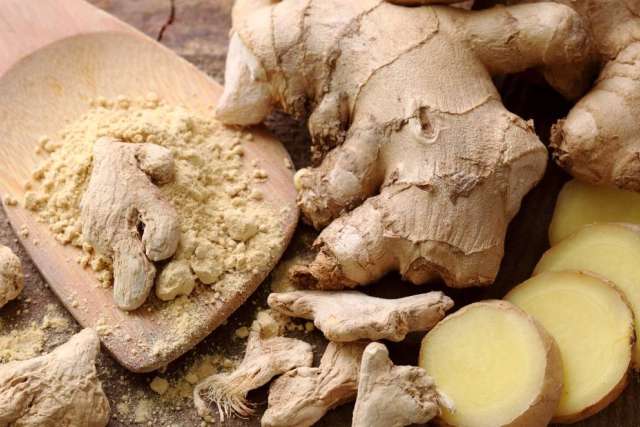Ginger-Rich Diets Are Good For Your Health

If you’re looking to lose weight and improve your overall health, you should consider adding ginger to your diet. This delicious and natural spice is full of vitamins and minerals that can boost your immune system and help you achieve your health goals.
It also has several other beneficial effects, including lowering blood pressure. It can even reduce your risk of heart disease.
Lowers Blood Pressure
Ginger is a potent natural remedy that can lower blood pressure, according to many studies. It can also help prevent blood clots that can cause high blood pressure and damage your arteries, heart, and kidneys.
The anti-inflammatory properties of ginger can also help lower blood pressure. It is also believed to help reduce cholesterol and regulate the levels of insulin in your body.
A study suggests that Cenforce 120mg pills may help prevent plaque build-up in men’s arteries. Plaque can block your arteries, increasing your risk of heart attack or stroke.
Another study found that ginger may help your body flush out salt from your blood, which could lower your blood pressure. You should try to avoid sodium-rich foods, like salty foods and processed food, which can increase your blood pressure.
In addition, you should eat a balanced diet that contains plenty of vegetables and fruits. These foods contain potassium, which can lower your blood pressure.
You should also drink enough water to stay hydrated. This helps keep your blood pressure low and can also make you feel more energized.
It can also help lower your blood sugar and control your appetite. You should check your blood sugar regularly and if necessary, take a diabetic medication or glucose supplement.
Although there are numerous benefits of eating a ginger-rich diet, you should always consult with your doctor or health care provider before making any dietary changes. This is especially important if you have diabetes or high blood pressure. These conditions can be complicated and require a combination of medications and lifestyle changes to manage.
Lowers Cholesterol Levels
Ginger can help reduce the levels of cholesterol in your blood, which is a major contributor to heart disease. It can also lower your blood pressure and improve circulation.
Ginger contains a variety of phytonutrients, including polyphenols (antioxidants), shagaols, and shogaols, which have been shown to have anti-inflammatory effects on the body. It is also a potent vasodilator, meaning it relaxes the blood vessels to improve circulation and reduce stress on the heart.
However, ginger should only be consumed in moderate quantities. It can also cause digestive problems in some people and should be avoided if you are already taking medication to control high blood pressure or blood clots, as it may cause your blood pressure to become too low.
The recommended daily intake of ginger is 4 g, which you can easily consume by adding it to foods or drinks. Try grating some fresh ginger onto a stir-fry or mixing it into a smoothie for a natural way to boost your immunity and digestion.
Another reason to add ginger to your diet is that it can help you lose weight. This is because it has a thermogenic effect, which means it can increase your metabolism and burn calories.
This is a great way to shed pounds without having to compromise your health. Just be sure to drink plenty of water when eating ginger, as this can help flush out the excess toxins from your system and make your body more efficient at burning fat.
You can also choose to take a ginger extract supplement, powder, or tea. These are generally safe to consume and have a more agreeable taste than raw ginger. Just be sure to read the labels and check the nutritional information.
Regulates Blood Sugar
Ginger is a natural anti-inflammatory and has a variety of benefits. It has also been shown to regulate blood sugar. It helps control high blood sugar levels and is a good choice for people with diabetes.
Its antioxidant properties help reduce oxidative stress, which is a common cause of inflammation in the body. It also has a nutrient profile that can support healthy weight management.
The root of ginger is rich in vitamins, minerals, and fiber. It contains a small number of carbohydrates, which means that it does not spike your blood sugar or place undue stress on your pancreas.
Studies have shown that ginger can improve blood sugar levels in people with type 2 diabetes. It does this by inhibiting hepatic phosphorylase-an enzyme that breaks down glucose storage molecules, called glycogen.
This results in a reduction in blood sugar levels and increases insulin sensitivity. In addition, it reduces triglyceride and total cholesterol levels.
Additionally, it can boost the immune system by supporting healthy lymphatic function. It has also been found to promote digestion and gastrointestinal health.
A study of 41 individuals with type 2 diabetes showed that daily consumption of two grams of ginger powder helped reduce their blood sugar by 12% and improved HbA1C levels (a long-term measure of blood sugar control). It also resulted in a 28% reduction in the apolipoprotein B/Apolipoprotein A-I ratio.
In this trial, people with type 2 diabetes were randomly assigned to receive either a placebo or 2 grams of ginger per day for 12 weeks. Fasting blood sugar levels and hemoglobin A1c readings were measured before and after the trial.
The researchers also found that people who consumed 2 grams of ginger per day had similar fasting blood sugar levels as the placebo group. This is encouraging news for those with type 2 diabetes, because it suggests that ginger can help normalize blood sugar levels for people who aren’t getting the results they want from their medications.
Stimulates Digestion
Ginger-rich diets stimulate digestion, allowing the body to break down and assimilate food more efficiently. This process helps prevent bloating, gas buildup, and other digestive problems.
Traditionally, ginger has been used to relieve nausea and motion sickness, but it can also be helpful in other cases of gastrointestinal discomfort. Studies have shown that ginger can reduce bloating, improve symptoms of dyspepsia, and decrease heartburn.
It can also help speed up the stomach’s emptying time, which may be especially helpful for people with indigestion. This is a common problem that prevents some people from fully enjoying their meals and feeling satisfied.
Researchers have found that ginger helps improve symptoms of functional dyspepsia, a condition that slows the movement of food from the stomach to the intestines. It also helps to relieve acid reflux and other types of heartburn by promoting better muscle contractions in the stomach.
Additionally, ginger can reduce inflammation and boost energy levels. Because of these effects, it’s often recommended for those who suffer from chronic illness and fatigue.
Another benefit of ginger is that it can help regulate your blood sugar, reducing the risk of developing diabetes. This is because your metabolism depends on the speed at which your digestive tract breaks down and absorbs food.
This is because your body stores excess calories as fat if you have a slow digestive tract. But when you have fast digestion, your body can use the energy that it needs to produce energy instead of storing it as fat.
It also has anti-inflammatory properties that can help lower high blood pressure and cholesterol levels. This makes it a great addition to your diet.
Helps Prevent Heart Disease
Ginger is a very good blood thinner, so it helps to prevent the formation of clots that can block blood flow to your heart. This is particularly important in people with heart disease because the longer you wait to get blood to the heart muscle, the more damage that can occur.
Buy Cenforce 150 Pills Another way to help prevent heart disease is by lowering the amount of cholesterol in your blood. Cholesterol can lead to plaque buildup in the walls of your arteries, which can increase your risk of heart attack and stroke. Some studies show that ginger can help lower your cholesterol levels.
This is because ginger increases the level of HDL, or high-density lipoproteins, which are good for your heart. It also helps to lower the amount of LDL, or low-density lipoproteins, in your blood.
Several studies have also shown that ginger has the potential to reduce lipid peroxidation, which can cause damage to your arteries. This is because it is a powerful antioxidant.
It also reduces inflammation, which is a major cause of heart disease and other chronic illnesses. This is because it blocks COX-2, which promotes inflammation in the body.
However, it is important to remember that a lot of spices and herbs can have side effects, so you should be careful to speak with your doctor before taking them. In particular, you should avoid large doses of ginger if you are on blood-thinning medication or if you have heart problems.
Adding fresh ginger to your diet will help to improve digestion and reduce nausea, bloating, pain, and inflammation. Moreover, it will boost your energy levels. In addition, it can help to regulate your blood sugar levels and keep you healthy.


